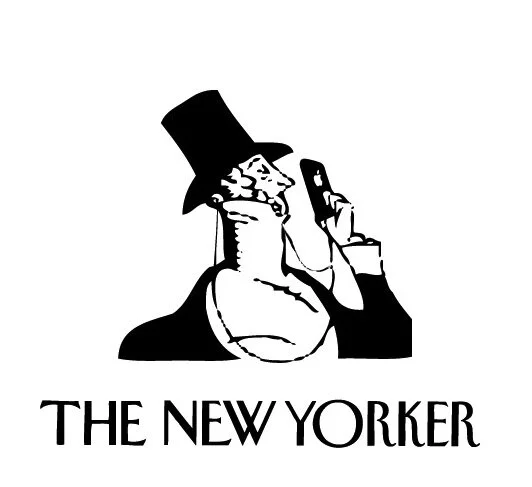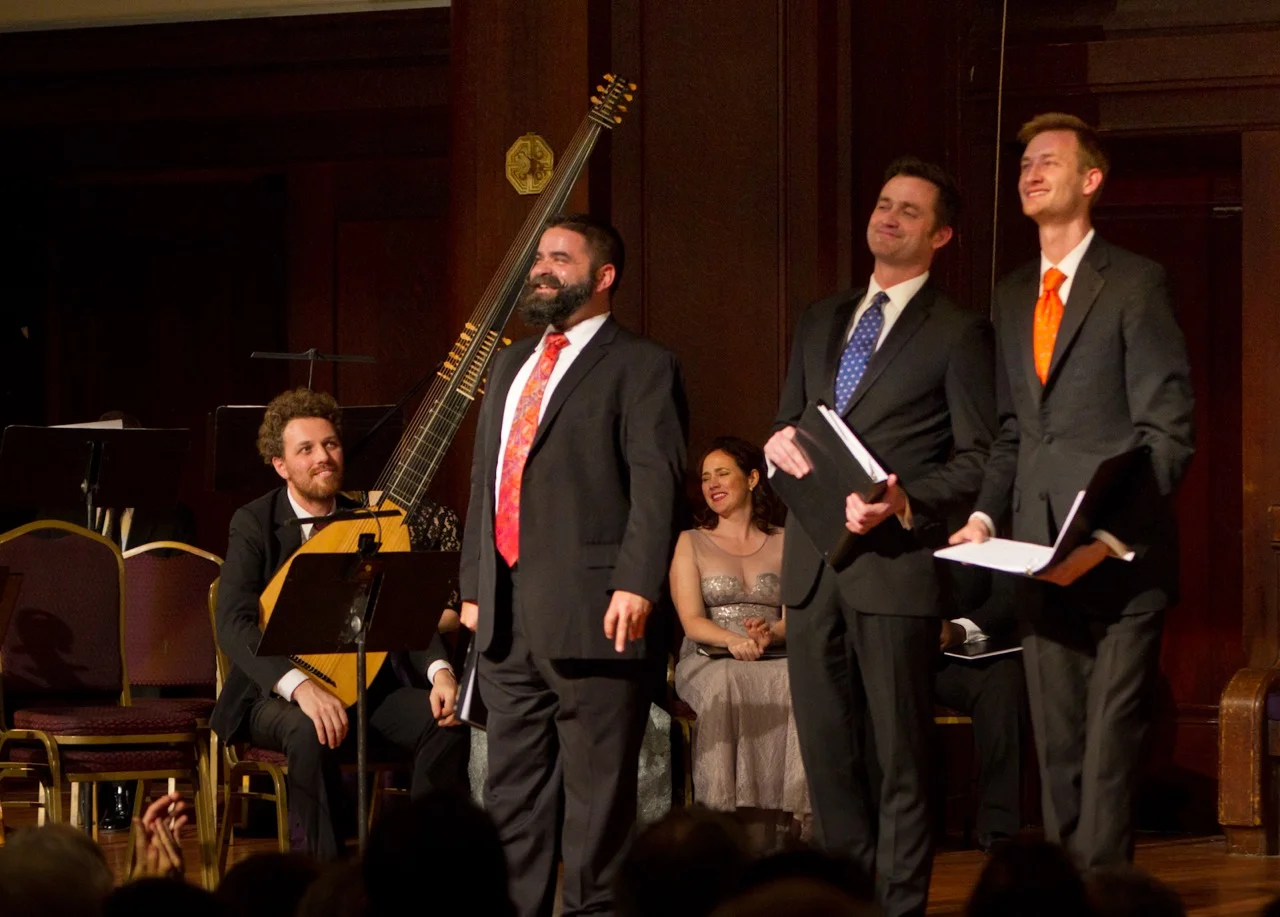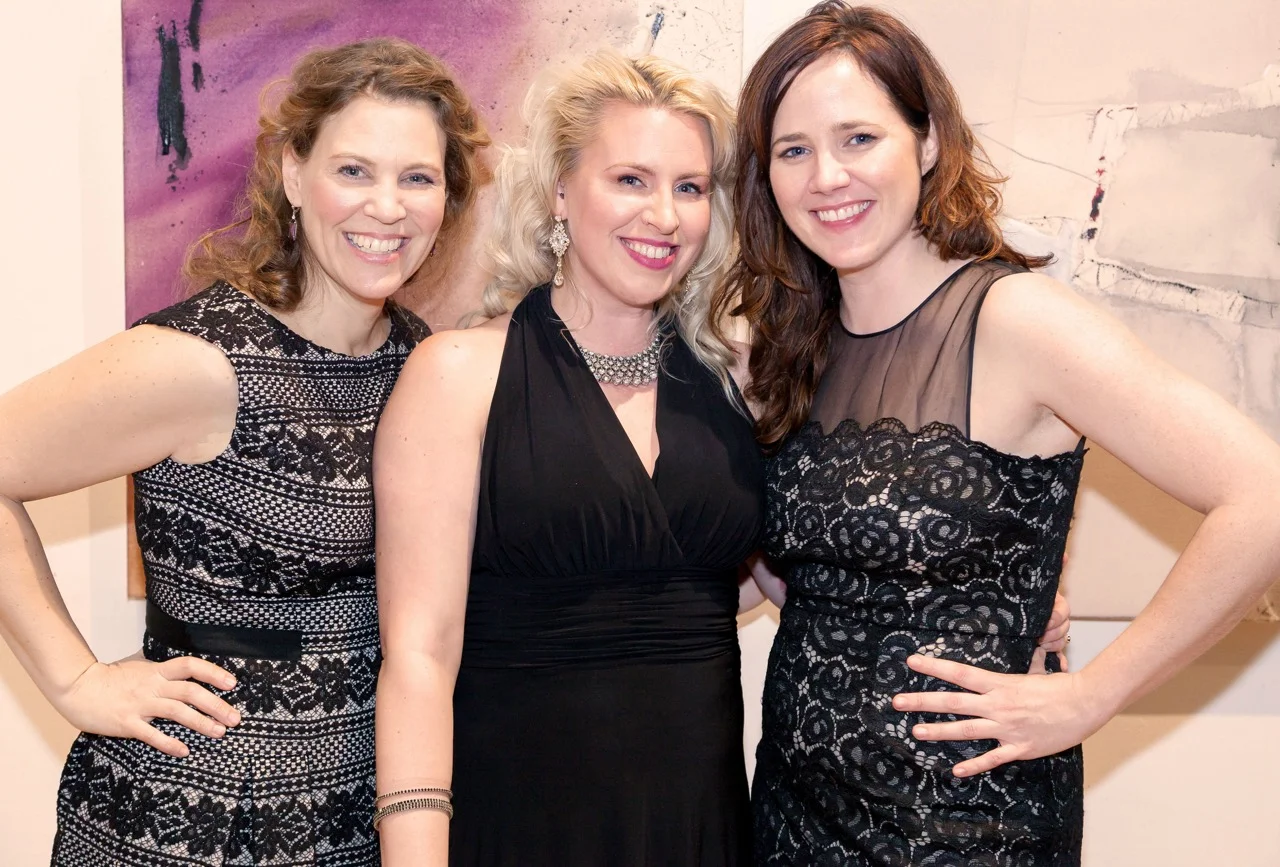“a statement of soul-baring sincerity that spread effortlessly… and, for an instant, dissolved the line between art and faith.”
The New York Times
Read MoreGreenleaf and Quinn, with their sprightly demeanors and ripe, pure vocal qualities, could certainly be the frontwomen for any bar band you like. They dived right in with two duos from Monteverdi’s Seventh Book of Madrigals, their voices intertwining like honeysuckle vines as they traded melodic phrases or conjoined in sumptuous counterpoint.
Read MoreTenet’s instrumentalists broke up the program with substantial works by Nicolò Corradini, Giovanni Gabrieli and Giovanni Battista Fontana, allowing the two superb violinists, Aisslinn Nosky and Beth Wenstrom, to do some duetting of their own. In Gabrieli’s “Sonata XXI con Tre Violini,” the two excellent cornetto players, Alexandra Opsahl and Kiri Tollaksen, were joined by a third, Bruce Dickey, a renowned American virtuoso said to be visiting from his home in Italy.
Read MoreIn Northern Italy, the singing women were a secret, advertised only to a select circle of noble auditors. They were Sirens. They excelled at the late Renaissance ideal of “sprezzatura”, the artful nonchalance of performing very difficult tasks with apparent ease.
Read MoreFounded in 1580 by the Duke of Ferrara, the Concerto delle Donne was an institution that revolutionised women’s role in music-making. For the first time an all-female ensemble had a professional position in secular society and an outlet for their virtuoso talents. On ‘The Secret Lover’, American early music ensemble Tenet pay homage to their musical ancestresses in a programme of music by Strozzi, Kapsberger, Caccini and Rossi.
Read MoreLove and war are the subjects of Monteverdi’s towering eighth book of madrigals, and they can be hard to tell apart. “The enemy, insidious Love, encircles the fortress of my heart,” goes one of the texts, an example of many in this collection of the blurring between “amor” and “guerra.”
The amorous mood won out on Saturday evening at the New York Society for Ethical Culture on the Upper West Side, where the ensembleTenet presented the sweet-natured program “Madrigals of Love and War.” It interspersed a handful of selections from Monteverdi with bits of his opera “Orfeo” and instrumental works by some of his contemporaries, among them obscurities like Bastian Chilese.
Read MoreThere are 18 items here, nos 1, 4, 7, 9, 14 & 16 being instrumental. It is an excellent anthology, mostly from the first half of the 17th century, though the earliest is Diego Ortiz from 1553, the ground bass surviving well into the 17th century. The music is more-or-less equally divided between the voices, and they sound well. Barbara Strozzi is the outstanding composer, with support from Caccini, d’India, Luigi Rossi and Mazzocchi. Do buy it.
Read MoreNew York’s Tenet ensemble here celebrates “music by, for and about women” in the context of the concerto delle donne, a virtuosic female vocal trio established by Duke Alfonso II of Ferrara in 1580.
The music of Barbara Strozzi and Francesca Caccini (credited as the first woman to write an opera) here rubs shoulders with the work of their male contemporaries, with the 21st-century compositional voice of Caroline Shaw providing a link across the centuries.
Read More"This album focuses on music of the Concerto delle Donne, a revolutionary (because of their gender) group of female professional musicians who sang and played in the court of the Duke of Ferrara in the late 16th century. Much of the music here is also by women, notably the gifted composer-singer Barbara Strozzi (1619-1677). Along with some instrumental selections, there are love songs, laments and a cheery little number with the refrain, 'Bisogna morire,' 'We all must die.' ..."
Read More"The New York-based early music group offer a luscious programme dominated by the 17th-century female composers Barbara Strozzi, whose L’amante segreto provides the collection’s title, and Francesca Caccini. A new work, Caroline Shaw’s Dolce cantavi, sits well here..."
Read MoreBy CORINNA da FONSECA-WOLLHEIM | DEC. 13, 2015
When it comes to festive Christmas dazzle, Handel and Bach have cornered the classical market with performances of their “Messiah” and “Christmas Oratorio” taking up much of the season’s real estate. On Saturday at the Holy Trinity Lutheran Church, two stellar early-music ensembles, Tenet and the Dark Horse Consort, made a strong case for allowing the glittering and refined Christmas music of Michael Praetorius (1571-1621) into the competition. The concert also counted members of Bach Vespers at Holy Trinity among the excellent performers.
Read More

















